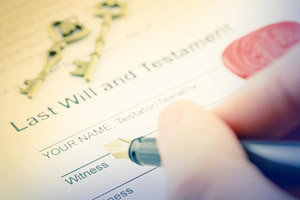
Though it doesn’t happen very often—typically in about 1% of all situations—there are grounds upon which you can challenge the validity of a will. Here are the most common arguments that can be made to bring the validity of a will into question:
The Capacity of the Testator
Under the law, the testator (person executing the will) must have been of “sound mind” at the time the will was drafted and signed. As a general rule, the court will attempt to determine the following:
- Did the person know what a will is and that he/she was signing one?
- Did the person understand what property he/she owned at the time?
- Could the person reasonably decide how to distribute his/her property?
- Did the person understand what he/she need to provide for his survivors?
Though it’s seldom of concern, the person executing the will must have been at least 18 years of age when the will was signed.
Was There Volition?
Essentially, this asks whether the testator willingly and knowingly executed the will. A number of factors can come into play here:
- Was there fraud or misrepresentation, such that the testator was misled about what was being transferred or to whom it was being transferred?
- Was there undue influence by a family member or was the will executed under duress?
Was the Will Properly Witnessed?
The witness requirements vary from state to state. With a typed or computer-generated will, there’s generally a requirement that the will be witnessed. Typically, witnesses may not be individuals who are beneficiaries under the will. However, if the will is handwritten and signed by the testator, it is valid in about half of the states without any witnesses.
Must a Will Be Notarized?
As a general rule, no. You can, however, include a provision in the will known as a “self-proving” affidavit, which is signed in the presence of a notary public. If you do, you can avoid the need to have the witnesses come to the probate court to testify that the will is valid.
Contact Barnard, Mezzanotte, Pinnie & Seelaus, LLP
At Barnard, Mezzanotte, Pinnie & Seelaus, LLP, we have fought for the rights of individuals throughout Delaware County since 1980. We offer a free initial consultation. To schedule an appointment, call us at 610-565-4055 or 302-594-4535 or contact us online.

